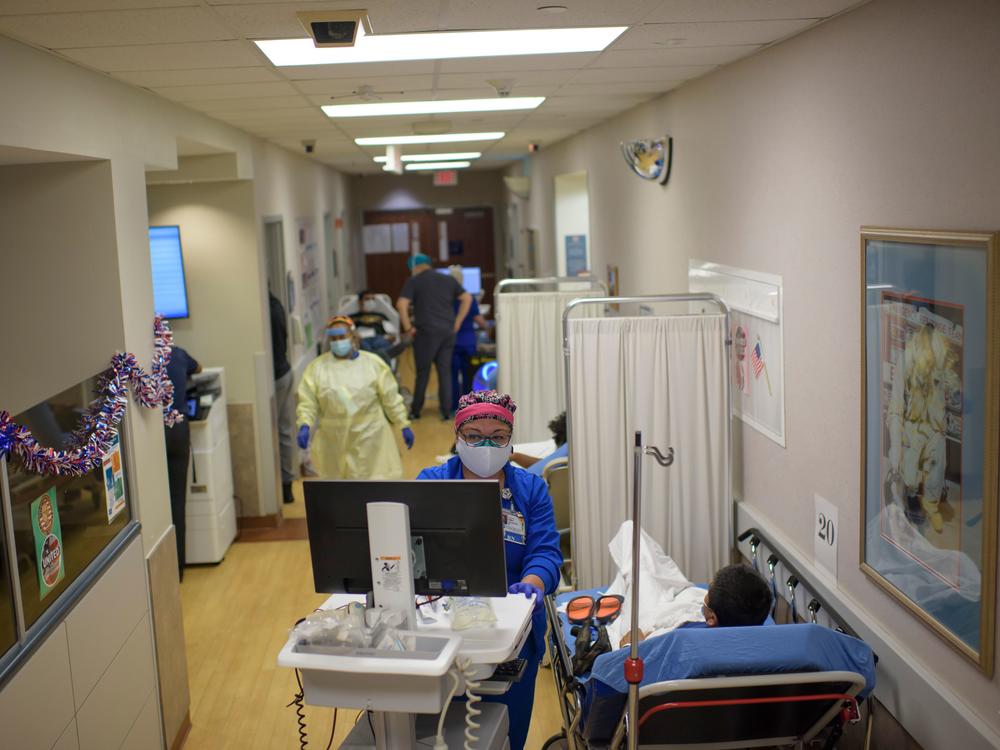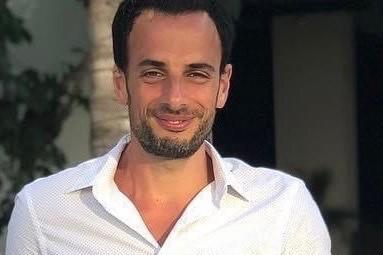Section Branding
Header Content
Texas Doctor Says Wave Of COVID-19 Cases Hit 'Like A Tsunami'
Primary Content
The U.S. Navy on Sunday deployed five medical teams to support health workers in South Texas, an area particularly hard hit by COVID-19. The state has had 10,000 new cases a day on average over the last week, up 55% since the beginning of July. And just over 4,000 people in Texas have died since the start of the pandemic.
Dr. Jamil Madi, chief of critical care medicine at Valley Baptist Medical Center in Harlingen, Texas, tells Morning Edition that his team has seen a surge of COVID-19 patients over the last few weeks. The intensive care unit went from only a few patients a month ago to 95% of current beds filled. They've now exceeded the units traditionally used for the ICU, he says.
"We started off with a couple of units, which we had conventionally, and then we started to expand and have makeshift units all over the hospital," Madi says. "Unfortunately, our hospital capacity right now — we have about 75% of our patients in the hospital are COVID patients."
Here are excerpts of the conversation.
On the types of COVID-19 patients being admitted
When the pandemic started a few months ago, we had some small surges or outbreaks in the nursing homes, and they were mostly elderly patients, obviously. And we were able to control that. ... We were able to treat them. Many of them were able to survive that. What we have right now is completely different. We have patients of all age groups: in their 20s and 30s and 40s and 50s and 60s coming in with either one comorbidity — they have some hypertension, diabetes — some of them don't even have any comorbidities. Invariably though, a large percentage of them have obesity. But remember, our population in that area is mostly obese.
Of course, also our population is also mostly Hispanic. ... As you know, the Hispanic population has been hit hard, in addition to the African American population. Some statistics and data show that they are three times more likely to get infected with a virus and twice [as] likely to die from the virus itself.
On how his staff is holding up after months of treating the virus
We thought that we were immune in Texas [early on]. In Texas, when we looked at the North, we felt bad for them and we said, "We are not going to have that. We're going to be OK." But it came over, and it came over hard, like a tsunami.
So yes, the staff is really overwhelmed, especially with the sustainability of it.
Hopefully, people do what they need to do: Wash your hands, social distance. And maybe we can bring down the rates and this surge.
Listen to the full interview at the audio link above.
Copyright 2020 NPR. To see more, visit https://www.npr.org.


